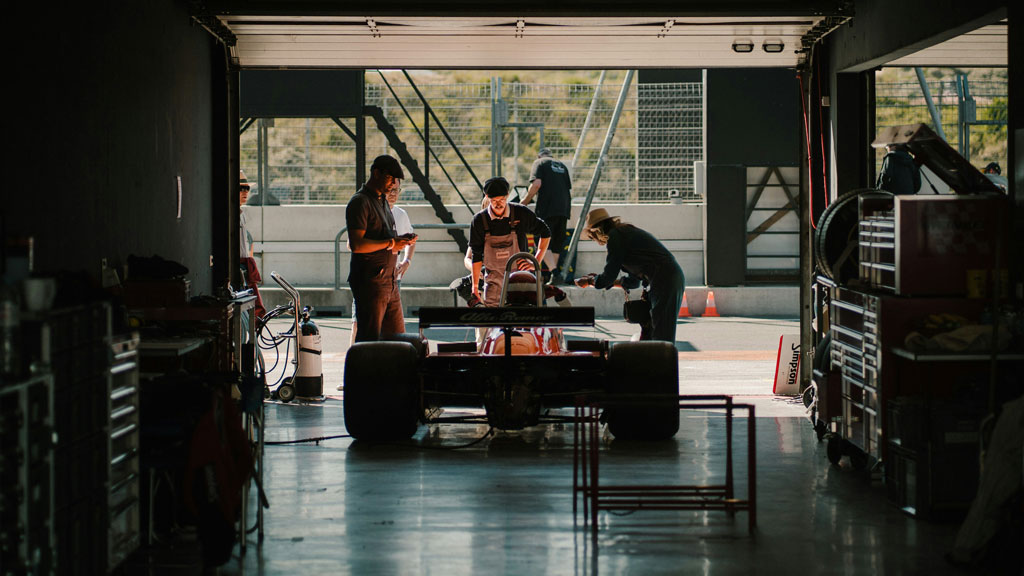How to speed up Timefold Solver Startup Time by 20x with native images
Discover how to build a Spring native image and the benefits from doing so.
Read more- solver
- java
- spring-boot
- quarkus
- newsletter
- community
- release
- performance
- vehicle-routing
- company
- feature
- optaplanner
- upgrade-to-timefold
- sports-scheduling
- quickstart
- time-windows
- delivery
- field-technician
- design
Ready to optimize your planning?
Get in touchRed Hat: OptaPlanner End Of Life Notice (EOL)
Timefold, led by former core OptaPlanner engineers, offers a seamless transition with extended support and accelerated innovation.
Read moreNewsletter 4: A big Speed Upgrade for Timefold - Our First Customer Story and AMA!
Unlock unprecedented speed with Timefold's latest update! Essential for OptaPlanner and pre-1.8.0 users – upgrade now for instant gains
Read moreHow fast is Java 22?
Explore the performance of Java 22 against Java 21, this time also with GraalVM.
Read moreContinuous Planning Optimization with Pinning
Discover how to make non-disruptive, feasible adjustments to your already in-progress plans with Timefold, ensuring real-time adaptability to unexpected changes.
Read moreFast Planning Optimization with the Recommended Fit API
Discover how Timefold's Recommended Fit API offers swift, feasible adjustments to your plans, ensuring real-time adaptability to unexpected changes.
Read moreNewsletter 3: Explainable AI for Planning Optimization
Discover how Timefold's ScoreAnalysis API builds trust in automated planning. And don't forget to join Timefold's first AMA on Youtube Live on March 19th!
Read moreUse Multiple Solvers in the Same Application
Learn how to configure and inject multiple SolverManager instances in one application using Timefold Solver, tackling distinct planning problems seamlessly.
Read moreNewsletter 2: The past, present and future of OptaPlanner / Timefold
When I started OptaPlanner 18 years ago, I couldn't dare to imagine that one day it would schedule millions of resources. It is amazing. This would not have been possible without the dedication, innovation, and high-quality work that each core and community contributor has brought to the table.
Read moreGenerate the optimal soccer schedule with Timefold
Learn how to code an automated tournament scheduling service with Timefold Solver
Read moreNewsletter 1: OptaPlanner team continues as Timefold
Timefold Solver is the faster, Open Source fork of OptaPlanner. It's built by a dedicated Open Source company, co-founded by the OptaPlanner creator.
Read moreMigrate from score DRL to Constraint Streams
Migrate from OptaPlanner's score DRL to Constraint Streams in Timefold Solver for better performance and maintenance.
Read moreTimefold Solver 0.8 reaches End Of Life
Upgrade to Timefold Solver 1.x now! With the release of Timefold Solver 0.8.42, it has reached End of Life. Learn why and how to upgrade.
Read moreTimefold Solver 1.4.0 brings explainable score
Timefold Solver 1.4.0 introduces explainable scoring, allowing easy breakdown of solution scores by constraints for end-users. Now available with JSON serialization for easy integration.
Read moreFueling Planning Optimization in Spring Boot
Discover how Timefold transforms Spring Boot into a versatile planning powerhouse, tackling complex optimization challenges with ease. Explore the benefits and integration steps in this article. Time to supercharge your Spring Boot projects!
Read moreHow fast is Java 21?
Explore the performance of Java 21 against Java 17, revealing minor improvements in micro-benchmarks and real-world scenarios.
Read moreSolve the vehicle routing problem with time windows
Learn to solve the vehicle routing problem (VRP) with time windows using Timefold Solver, incorporating customer availabilities as constraints.
Read moreTimefold Solver 1.0 is taking shape
Timefold Solver 1.0.0 update: redesigned benchmarks, Constraint Streams enhancements, performance boosts, and bug fixes. Get a sneak peek before July release.
Read moreOptaPlanner continues as Timefold
Timefold Solver is the faster, Open Source fork of OptaPlanner. It's built by a dedicated Open Source company, co-founded by the OptaPlanner creator.
Read moreDesigning the Timefold logo
Explore Timefold's logo creation journey, from concept to final design. Which logo would you choose?
Read more



















